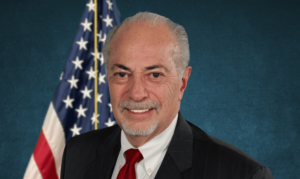At the Constitutional Convention one of the Founding Fathers (I forget who) was quoted as saying: “It is easier to inflame than inform.” The more I see, and the more I read, and the more I understand, the Tea Party movement has dedicated itself to this easier route. In this, and undoubtedly helped by these wonderful times, the movement so far has been effective.
The new billboard leading onto I-85 tells us the South Atlanta Tea Party is all about “Free Markets, Limited Government, and Fiscal Responsibility.” As Americans, how could we possibly be against any of those things and if we’re not against them perhaps we should join and be for the Tea Party?
Once pulled in, we can hear about how badly the present government is doing and how we need to be willing to throw the bums out come election time. Conveniently the bums right now are the Democrats.
But let’s get back to these three precepts which we as Americans can’t possibly be against.
1. Free markets — This is a nice slogan but what exactly does it mean? During the time George Bush was in office, it meant a continual degradation of government oversight of our food supply, our financial system, our environment, protection of our workers rights, and our national parks.
The difficulty with this slogan is that it has no meaning, yet it is a powerful spur to our emotions. The great majority of us believe in a system which is not so clogged with bureaucracy that it drives the entrepreneur into the ground or out of the country. We also believe small businesses should not be extraordinarily burdened.
At the same time we have seen how the great financial men will play Russian roulette with our nation’s financial future unless they are impelled to caution.
We have seen how the managers of great meat packing companies will disregard basic standards and infect our food supply in the absence of oversight.
We are seeing the destruction of the Gulf of Mexico at the hands of one company which has been cozy with its regulator and unprepared to correct the inevitable results of human error.
The Tea Party doesn’t tell us they want that kind of a “Free Market” system. The Chinese likewise believe in free markets as long as that means they export a lot and import a little. J.D. Rockefeller believed in free markets as long as Standard Oil dominated them.
I believe in free markets as long as it is in the interest of the United States and doesn’t hurt my job. What kind of “Free Markets” does the Tea party want?
2. Limited Government: The men at the Constitutional Convention were pragmatists. Frankly they were not even authorized to do what they did, which was to throw out the Articles of Confederation and invent this new form of government.
They were all classically schooled, had read Adam’s pamphlet on government and were not inclined to waste a lot of time on reasons for government.
They did know that what they had was unworkable: a confederation with 13 separate sovereign entities, all of which had to agree to do anything and likewise had to voluntarily contribute to sustain the central government.
International contempt for the young United States, the growing hostility among states, the inability to collect revenue, the shrinking money supply, and Shay’s rebellion weighed heavily on all the delegates.
Some like Lansing and Yates of New York and Luther Martin of Maryland were not willing to sign any agreement which infringed on their state’s sovereignty. Most of the rest did not agree but were willing to compromise where needed.
The agreed-upon document from the start was a political compromise. It did not outlaw slavery, nor did it contain any Bill of Rights. It was written as Madison described “for the ages” and it’s very lack of specifics and flexibility has allowed the Constitution to survive to this day.
What does all this have to do with “Limited Government” and the Tea Party? The rub lies in Tea Party interpretation of history and the mixed messages they are sending out.
They imply the Constitution has been violated and seek some non-specific remedies hiding behind this “Limited Government” facade.
Would their “Limited Government” have included President Bush’s ignoring the fiscal crisis and quietly watching as the banks failed and the money supply, and consequently capital lending, dried up (Herbert Hoover did in the Great Depression).
Would it have included President Obama’s follow-on measures? How happy would they be with an unemployment rate of 25 percent and massive deflation as occurred from 1930 until almost the beginning of WWII.
“Limited Government” is a slogan which has become a sort of Reaganite mantra but really means get government off the backs of the big contributors.
3. Fiscal Responsibility: Now here is something we can all agree on … or can we? I believe the government should balance its books and I believe in doing so we need to look at all expenditures.
Are Tea Partiers prepared to examine reductions in Social Security, Medicare, Medicaid, prescription drugs, government wages, government retirements, military wages, military retirements and benefits? Should it eliminate Aid to Families with Dependent Children (welfare) and food stamps? Should we let some of our nation’s children starve, because some will without these programs?
The government has spent too much in a lot of places and needs to be reined in, but we ought to be honest in our examination of its outlays. You won’t find Tea Party literature on the above because it would be a specific and cause a lot of people to think real hard about their participation.
The Tea Party movement is being used to influence a mid-term election. It plays on people’s angst with handy but hollow slogans, provides little detail and its main purpose is to provide energy in altering the balance of power. In return we will get many of the same types of people who helped to get us into this mess to begin with.
If we want to get mad about something, let’s get mad about moneyed influence on our politicians. Let’s pass a constitutional amendment saying that corporations are not people and are not entitled to free speech (as the five Republicans on the Supreme Court recently ruled).
Let’s find a way to get large donations out of the picture. Let’s elect people who are there to do right by their constituency and the country, not Halliburton.
It’s a simple idea and certainly no panacea, but getting the money out of the process would be a great start. There’s a specific for you Tea Partiers and might serve a good substitute for meaningless slogans.
Timothy J. Parker
Peachtree City, Ga.











Leave a Comment
You must be logged in to post a comment.